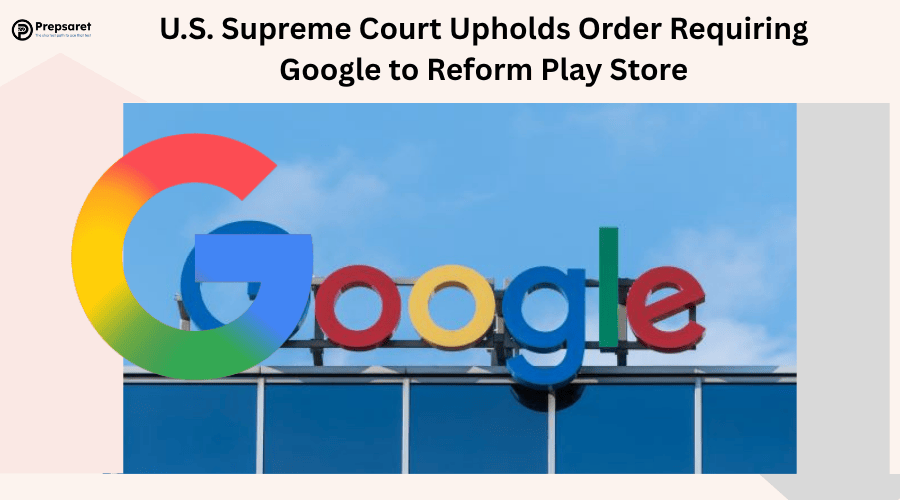Key Points:
- The U.S. Supreme Court declined Google’s request to pause an order requiring major changes to its Play Store operations.
- The ruling stems from Epic Games’ antitrust lawsuit accusing Google of monopolizing app distribution and payments.
- Developers will soon be allowed to direct users to external payment systems, bypassing Google’s fees.
Supreme Court Clears the Way for App Store Overhaul
The U.S. Supreme Court on Monday rejected Google’s appeal to suspend parts of a lower court’s injunction mandating broad reforms to its Android app store, Play. The decision marks a major victory for Epic Games, the maker of Fortnite, which sued Google in 2020 for antitrust violations, accusing the company of monopolizing app access and in-app payment systems.
The injunction, issued by U.S. District Judge James Donato, compels Google to allow competing app stores to operate within the Play Store and to grant them access to its full catalog of Android apps. These provisions are scheduled to take effect in July 2026. Another key change—allowing developers to add external payment links in apps—will begin later this month.
A federal appeals court upheld the injunction in July, leaving Google with few options beyond continuing its appeal. In a statement, Google expressed disappointment but confirmed plans to file a full appeal with the Supreme Court by October 27.
The company maintains that the reforms pose significant “security, reputational, and competitive risks,” potentially affecting over 100 million U.S. Android users and half a million developers.
Also Important Headlines:
Epic’s Antitrust Win and Industry Implications
Epic Games hailed the Supreme Court’s decision as a win for fair competition. CEO Tim Sweeney wrote on X (formerly Twitter) that starting this month, developers will be “legally entitled” to direct users to outside payment platforms “without fees or friction.” Epic argues that the ruling will open the Android ecosystem to greater choice, lower costs, and improved innovation.
Judge Donato’s order followed a jury’s 2023 verdict in Epic’s favor, which found Google’s app store practices unlawfully restrictive. Epic contended that Google’s control over Android app distribution stifled competition and inflated consumer prices. Google, meanwhile, has denied wrongdoing and continues to argue that its security protocols are essential for user safety.
The Supreme Court’s refusal to intervene ensures that the injunction will proceed, setting the stage for one of the most significant antitrust-driven overhauls in the U.S. tech industry. Analysts say the outcome could reshape digital marketplaces by empowering developers and challenging the dominance of major platforms like Google and Apple.
As Google prepares its formal appeal, the ruling underscores a growing global movement toward regulating big tech monopolies. Whether the company can preserve its app store model—or will be forced into a new era of open access—remains a defining question for the digital economy.

